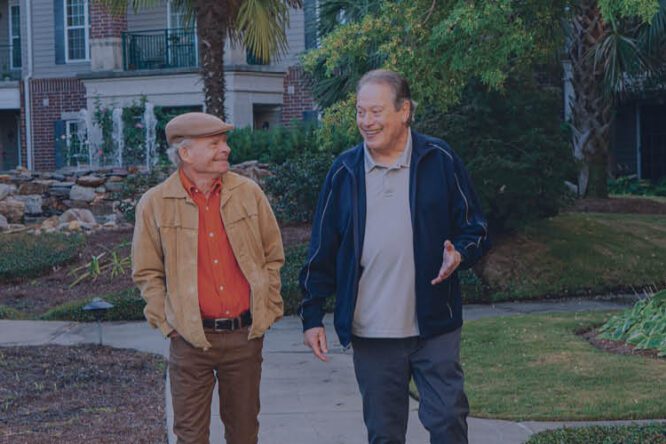Every great story starts with someone worth caring about. On Varsity’s Roundtable Talk, documentary filmmaker Peter Murphy Lewis shared how his series People Worth Caring About gives voice to the caregivers whose compassion and commitment define long-term care communities across the country.
Peter shared how his grandparents’ positive experiences in senior living inspired his work and why focusing on staff stories helps shift public perception. He recalled moving encounters in hospice, lessons about dignity and language, and how storytelling can inspire young people to see caregiving as a calling.
The following are some fresh perspectives from the conversation. Check out the full episode here.
WHAT INSPIRED YOU TO CREATE “PEOPLE WORTH CARING ABOUT”?
It was a personal story that started it. When I began working in long-term care, I realized caregivers were fighting against a negative perception that existed even before COVID and was made worse by the pandemic. My own grandparents had incredible caregivers — people who treated them with love and dignity. But those caregivers rarely get the recognition they deserve. I wanted to change that narrative.
WHY DID YOU CHOOSE TO FOCUS ON STAFF STORIES RATHER THAN RESIDENTS?
My background helped shape that decision. I used to host a TV show in South America similar to Dirty Jobs, where I interviewed people doing hard, meaningful work. So when I started this project, I naturally focused on caregivers. Looking back, that choice was “accidentally strategic.” When you put caregivers front and center, people don’t criticize — they empathize. You can’t look at someone like LaVita, who’s worked in memory care for 30 years, and not feel admiration.
WAS THERE A MOMENT THAT MADE YOU REALIZE YOU WERE ONTO SOMETHING SPECIAL?
Yes, on the very first day of filming in Nebraska. We visited a hospice called the Grace Space. One of the residents, Kim, was nonverbal, but she communicated with her CNA, a young man about 19 or 20, through her phone. She wrote that she felt blessed to have him caring for her and that she was excited to go to heaven, where she could dance again. That moment showed me how deep these relationships go — and I knew right then we weren’t just making a short film. We had a full season’s worth of powerful stories.
HOW DO CAREGIVERS STAY GROUNDED IN SUCH EMOTIONALLY DEMANDING WORK?
They’re stronger than I am. I think a lot of them have a love language rooted in service — they feel fulfilled by doing things for others. They find purpose in making people feel valued and comfortable. It’s not easy, but they have this incredible ability to compartmentalize and keep giving. Their hearts are built for it.
WHAT KIND OF IMPACT HAS THE SERIES HAD ON THE INDUSTRY?
The feedback has been incredible. Leaders from the American Healthcare Association called it an authentic depiction of long-term care. State associations are even using clips for advocacy — geofencing them around the U.S. Capitol so lawmakers see them. They’re also using the series for fundraising and to show the real faces behind the work. The reactions from caregivers themselves, and even my own father’s emotional response at the premiere, reminded me why this storytelling matters.
Want to hear more from Peter? Check out the full episode of Roundtable Talk for more fresh perspectives. Watch new episodes of Roundtable Talk on the Varsity website and on Apple Podcasts, Spotify, and iHeartRadio.



